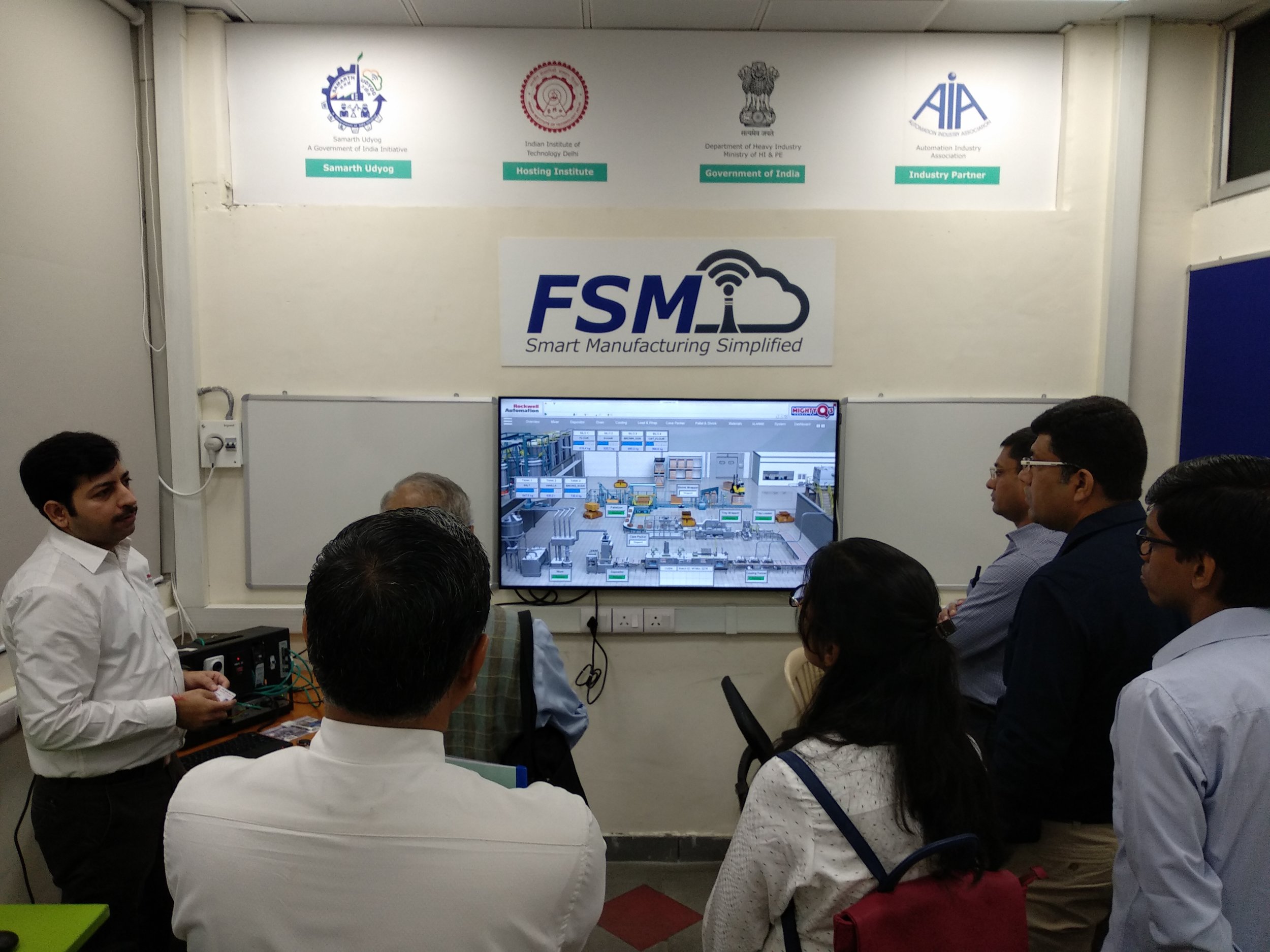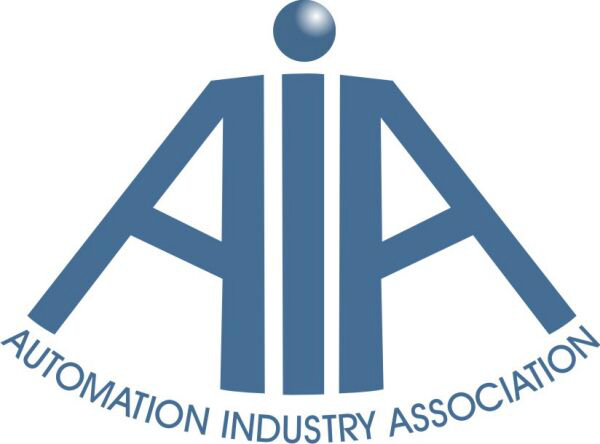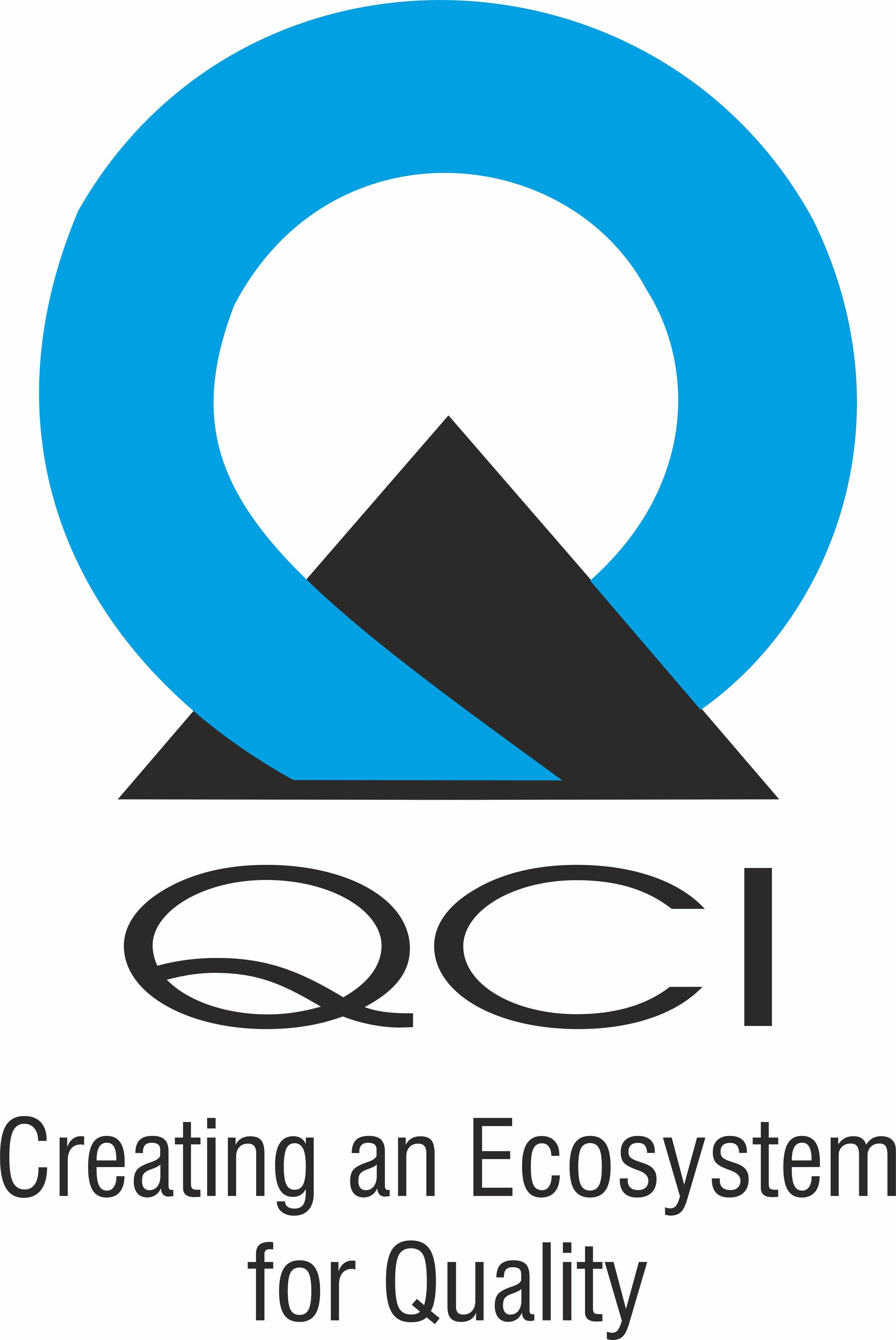All nations are talking about the storm of Smart Manufacturing / IOT / Industry 4.0. Classical models of manufacturing and business are giving way too much more collaborative, self-aware, innovative and productive techniques, using data sourced directly from sensors, machines, vendors and customers. This has a direct impact on competitiveness and quality of goods and services of an enterprise. Samarth Udyog is the goal of the Indian Manufacturing Ecosystem and is achievable in a manner that works for you. To strengthen the ‘Make in India’ eco-system with adoption of smart technologies, the Automation Industry Association and IIT Delhi have created a Special Purpose Vehicle, called the Foundation for Smart Manufacturing (FSM) to take the emerging wave of Smart Technologies and adapt it with relevance to the needs of grass root manufacturing in MSME and talent incubators in Educational and Vocational Institutes. Delivering consistent quality backed by stringent norms through the production and manufacturing pipeline, right from raw material sourcing to finished product delivery for the quality conscious end user, it is essential that Indian industry aligns itself towards adopting newer and tested quality assurance practices. To facilitate, introduce and enlighten industry with an evolved genre of quality focused smart manufacturing, Quality Council of India supported by IITD-AIA Foundation for Smart Manufacturing conducted an awareness workshop with hands-on exposure in the FSM Cyber Physical Laboratory.
PROGRAM
| Keynote Session Type: Lecture Theme: Global Smart Manufacturing Scenario and Implications for India Speakers: Mr. C K Biswas, CEO, NBQP, Quality Council of India Mr.Ravi Agarwal, Vice President AIA and Director FSM |
| Technical Theme - 1 Session Type: Case Studies + Lecture Theme: Role of Sensors, Human-Machine Interaction, Precision Control in the Quality Journey Lead Instructor: Prof. Sunil Jha, IIT Delhi and Director FSM |
| Lab Session - 1 Session Type: Demo + Hands - On in Laboratory Theme: Familiarisation with the Building Blocks of Smart Automated Machines Laboratory Facilitators: Mr. Arun Kumar - Mr. Onkar Chawla - Mr. Akash Tiwari |
| Lab Session - 2 Session Type: Demo + Hands - On in Laboratory Theme: Familiarisation with Collaborative, Digital, Engineering and Asset Management Tools Lab Facilitators: Mr. Tushar Ghosh - Mr. Prakhar Mishra - Ms. Preeti Joshi |
| Technical Theme - 2 Session Type: Case Studies + Lecture Theme: Demystifying the Digital Thread and ‘Anywhere’ Data Lead Instructor: Prof. Sunil Jha, IIT Delhi and Director FSM |
| Concluding Thoughts Session Type: Open House Theme: Organisation Assessment and Road Map for Samarth Udyog / Smart Industry Moderator: Mr. Anup Wadhwa, AIA Experts: Mr. Dilip Kumar, Head-Technical and Projects, East West Infosolutions Mr. Arun Kapur, COO ( International Business), Luxor Writing Instruments Dr. Jatinder Singh, Director PHDCCI |
| Certificate Distribution by Mr. Avik Mitra, Senior Advisor, NBQP, Quality Council of India |
| Networking |
PROGRAM OVERVIEW
Inaugural Theme: Global Smart Manufacturing Scenario and Implications for India - Manufacturing industry is responding to consumer and environment demands with a high degree of technological innovation that is being fuelled by the rapid convergence of Information and Automation processes. The competitive equation is no longer determined by low wages. It is being replaced by speed, flexibility and first-time right abilities.
Technical Theme - 1: Role of Sensors, Human-Machine Interaction, Precision Control in the Quality Journey - Quality assurance is largely a function of the material processing and inspection functions, whereas cost competitiveness is largely a function of idle time reduction and waste elimination. Sensors are the 24*7 watchdogs, measuring every minute aspect of operation. Information that is relevant for automated control is passed on to PLCs or Servos, whereas information to alert and guide plant personnel is presented via appropriate Human-Machine interface devices. This session was aimed at helping participants understand the various classifications of Sensors, HMIs and Control Systems used in modern machineries.
Lab Session - 1: Familiarisation with the Building Blocks of Smart Automated Machines - This session offered a practical and live demonstration of a smart machine, built for precision assembly. Lab facilitators provided a hands on opportunity to participants to experience Presence Sensors, RFID, Vision Systems, Touch-screen interactive HMIs, Process and Motion Control Systems that are deployed globally in Smart Automated Machines
Lab Session - 2: Familiarisation with Collaborative, Digital, Engineering and Asset Management Tools - This session offered a live demonstration of software tools and cloud-based services. With the help of simple case studies, participants experienced how physical components are converted into ‘digital’ format and presented for human collaboration. Among the tools demonstrated were 3D Visualisation, Augmented Reality and Real-time Analytics.
Technical Theme - 2: Demystifying the Digital Thread and ‘Anywhere’ Data - Possibilities of Cyber Physical integration are increasing rapidly because of the rapid deployment of cloud based digital platforms. It is now possible for people to collaborate sitting far away from each other. This session helped participants differentiate general IoT platforms with IIoT platforms. Covering relevant digital services for manufacturing such as deployment of Augmented Reality and Analytics.
Panel Discussion Theme: Organisation Assessment and Road Map for Samarth Udyog / Smart Factory - The indicators of ‘Samarth Udyog’ or Smart Factory presented by panelists and were discussed in an open house format. This session was aimed at providing participants an opportunity to explore a few relevant steps they can initiate in their existing roles, to prepare for the journey into Smart Manufacturing.
ADVISED EXPOSURE
EXPECTED PARTICIPANT PROFILE
| • Manager level and above from manufacturing and process industries dealing with technical subjects • Consultants and Auditors / Assessors of the above domain • Academicians • Any professional who wants to understand the future of Industry 4.0 |
• Basic Exposure to Manufacturing Functions • Understanding of Real-time data • Responsibility for Improvement Projects |
|---|
Reported Takeaways
Participants who attended this programme reported receiving a balanced view of the fundamental shifts taking place relevant to the Indian ecosystem.
A consequence of being exposed to the possibilities of ‘Digitalisation’ - its benefits as well as key challenges involved.
Enlightened with a basic framework of readiness for Industry 4.0.
While participants who had their internal systems and budgets already set for improving quality and transparency were guided by experts and encouraged towards identifying teams, technologies and detailed engineering needs for conducting proof-of-concept activity.































